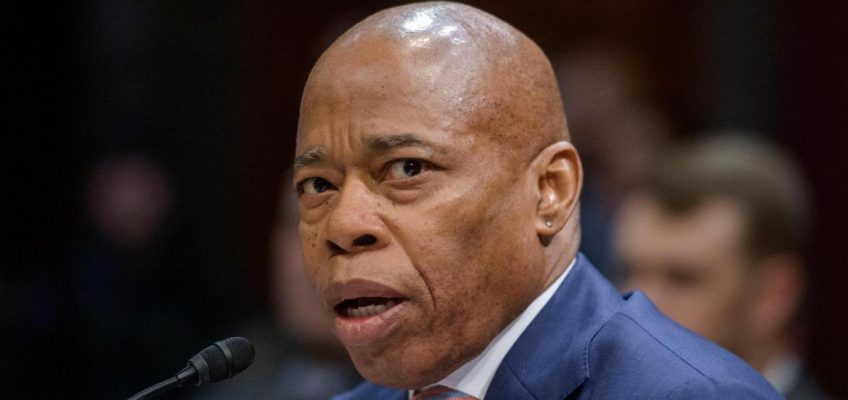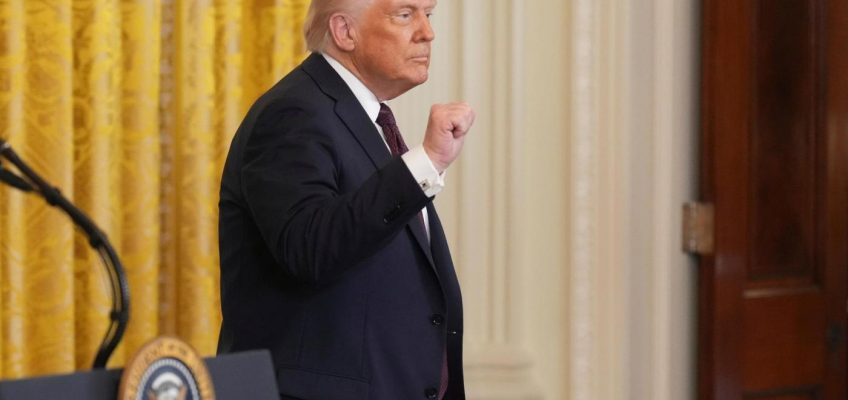By MICHAEL R. SISAK
NEW YORK (AP) — A top Justice Department official was leaning toward dropping corruption charges against New York City Mayor Eric Adams even before summoning the top Manhattan federal prosecutor at the time to Washington to discuss the case, newly unsealed documents show.
Related Articles
Trump signs sweeping executive action overhauling US elections, including citizenship requirement
President Trump pardons former Hunter Biden business partner Devon Archer
US Vice President JD Vance to join his wife in Greenland on Friday
The US Postal Service has been struggling for years. Now Trump’s talking about privatizing it
Appeals court allows Trump administration to suspend approval of new refugees amid lawsuit
Former interim U.S. Attorney Danielle Sassoon said in a draft memo made public Tuesday that Emil Bove — now the department’s third-in-command — told her of his thinking on Jan. 27, four days before a closed-door meeting at Justice Department headquarters where she and Adams’ lawyers argued for and against keeping the case alive.
Sassoon said she suggested Bove wait on a decision until President Donald Trump’s nominee for Deputy U.S Attorney General, Todd Blanche, was confirmed by the Senate. She said Bove told her that Blanche — his former law partner and co-counsel on Trump’s criminal defense team — was on the “same page” and there was “no need to wait.”
In her draft memo, Sassoon offers details, observations and a heavy dose of frustration that did not make it into the final version sent to U.S. Attorney General Pam Bondi on Feb. 12, the day before Sassoon resigned in protest.
The draft memo and other documents — including text messages, emails and comments reflecting internal discussions among prosecutors — were made public as the mayor’s case teeters toward a likely dismissal.
The Justice Department had filed the documents under seal on March 7, the same day a court-appointed legal expert advised the judge, Dale E. Ho, that legally he has no choice but to end the case.
Bove and Blanche, confirmed two days earlier, suggested in an accompanying public court filing that the documents raised questions about the strength of the case against the mayor and whether the mayor was a target of the so-called weaponization of justice.
In seeking dismissal, Bove has argued that the charges were filed too close to Adams’ reelection campaign and that defending himself in court would distract him from assisting in Trump’s immigration crackdown.
Ho, who has yet to rule on the request, ordered that the records be made public by Tuesday after several media outlets sought their disclosure.
Adams was indicted in September on charges alleging he accepted over $100,000 in illegal campaign contributions and travel perks from a Turkish official and others seeking to buy influence while he was Brooklyn borough president. He faces multiple challengers in June’s Democratic primary. He has pleaded not guilty and insisted he is innocent.
Adams and his lawyers have suggested that he was charged as punishment for criticizing then-President Joe Biden’s immigration policies. Prosecutors involved in the case have denied that, writing in a court filing earlier this year that the investigation into Adams began a year before he started speaking out.
At the Jan. 31 meeting in Washington, Sassoon wrote that Bove gave her and her team just 40 minutes to detail the chronology of the investigation, ordered one of them to shred his notes, and he did not give her a chance to address “a number of issues that bear on the decision to seek dismissal of the case.”
Sassoon said Adams’ lawyers were then given 40 minutes to discuss “the impact of the case on his ability to govern” and assist in immigration enforcement.
“That simply does not suffice,” Sassoon wrote.
She called the nature of the discussions about the Adams’ case “alarming” and added that she remains “baffled by the urgent and superficial process by which this decision was reached.”
Adams’ advocacy, Sassoon said, “should be called out for what it is: an improper effort to withhold immigration assistance for a dismissal of his case.”
Among the issues Sassoon said she wanted to address at the Jan. 31 meeting was Bove’s contention that recent actions by former U.S. Attorney Damian Williams, who brought the Adams case, tarnished the case with the appearance of impropriety.
Sassoon noted in the draft memo that while she was “personally disappointed” by Williams “self-serving actions” after he stepped down late last year — which included his penning a column on public corruption and launching a campaign-style website — they didn’t warrant dismissing the case.
“There are myriad ways to address any arising prejudice or weaponization well short of a dismissal — steps routinely taken in other cases with pretrial publicity — but I never had a chance to raise them,” Sassoon wrote.
Other documents unsealed Tuesday offered a rare, behind-the-scenes look at how federal prosecutors in Manhattan built and then tried to salvage the Adams case.
They include discussions over text messages about case strategy and suggested edits to a draft of a court filing in January after Adams’ lawyers alleged that Williams’ column and website had tainted the case with “ethical misconduct.”
In comment bubbles down the right margin of a Microsoft Word document, prosecutor Hagan Scotten cautioned colleagues on the political implications and public perceptions of certain phrasing, parsing which words and facts to include or delete.
Scotten, who also resigned last month in protest, suggesting nixing a line about Adams’ indictment having been approved at the highest levels, writing: “There’s no world in which saying the Biden Justice Dept approved this helps us.”
He also suggested deleting a line that, in his assessment, appeared to pass the buck to the grand jury for indicting Adams.
“We want the judge and everyone else to believe us when we say DW didn’t cause this prosecution,” Scotten wrote, referring to Williams. “Hiding behind the grand jury will sound disingenuous to knowledgeable readers, since GJs will come pretty close to indicting ham sandwiches.”




